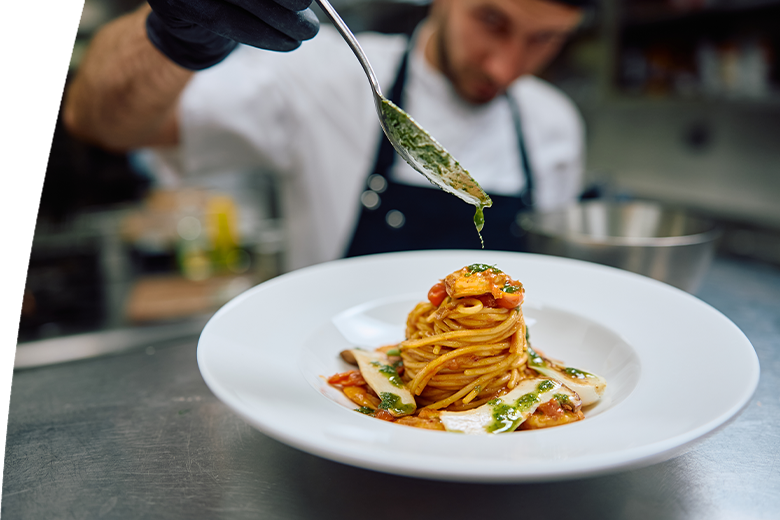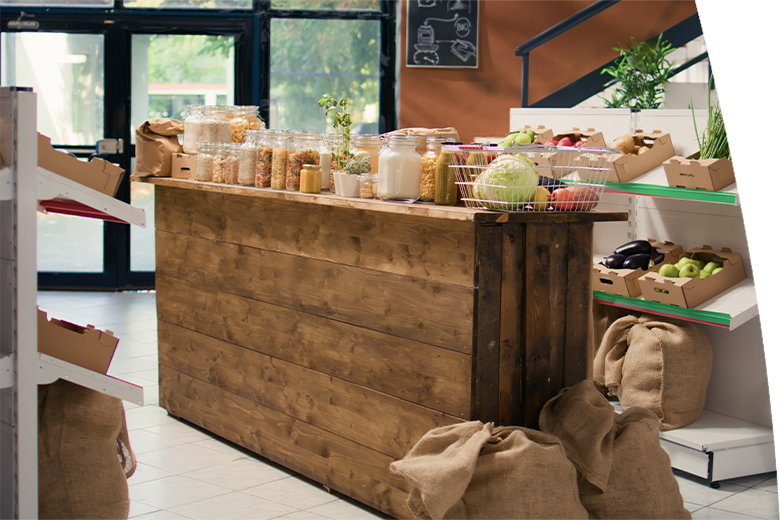How can restaurants celebrate World Pasta Day in an eco-friendly and efficient way?

Every year on 25 October, one of the most popular dishes in the world through World Pasta Day is celebrated. Pasta is not only tasty and universal, but also suitable for restaurants that are trying to reduce their ecological footprint. In a context of growing demand for sustainable solutions, an increasing number of catering companies are attempting to operate in an eco-friendly and efficient way.
Selection of local and ecological ingredients
One of the most simple ways to promote sustainability in pasta dishes is to buy local and ecological ingredients. Pasta is mostly made from wheat that can be sourced from local farms. Quality organic wheat products will not only reduce the carbon footprint associated with transportation, but also support farmers who grow without the use of chemicals and pesticides.
In addition to pasta itself, restaurants can buy seasonal local products for sauces and side dishes. For example, fresh vegetables, herbs or olive oil can be sourced from ecological farms or local growers.
Effective handling of leftovers
One of the biggest problems in restaurants is wasting of food. While pasta is a cheap ingredient, efficient management of leftovers can make a significant contribution to sustainability. Many pasta meals, such as lasagna, baked pasta or pasta salads, can easily be prepared from leftovers. In this way, restaurants can not only save money but also reduce the amount of food waste.
Alternative pasta and meat amount reduction
Most pasta is made from wheat, but there is a growing popularity of alternative options such as gluten-free pasta, lentil or chickpea pasta, which are not only healthier but also more environmentally friendly. Pulses such as lentil or chickpea enrich the soil with nitrogen, contributing to healthier agriculture.
In addition, restaurants may consider reducing the meat content in pasta dishes. Sauces based on vegetables, pulses or mushrooms can be a wholesome substitute for traditional meat-based sauces such as ragout. Less meat means less water, land and other resources consumption, thus reducing the environmental impact of a restaurant.
Energy efficiency in food preparation
Pasta requires cooking in large quantities of water, which can be challenging in terms of energy and water consumption. Modern technologies such as induction hobs or efficient cooking systems can help restaurants reduce energy consumption. Plus, cooking pasta in less water or reusing this water to cook other foods can be another step towards waste reduction.
Some restaurants are already experimenting with pre-cooking of pasta, which means that pasta is only briefly baked or reheated before to be served, reducing the necessity for long cooking times.
Composting and recycling
Food leftovers, peels from fresh vegetables and other organic materials from kitchen can be composted. Nowadays, many restaurants create their own composts, which they later use to grow herbs or vegetables directly in restaurant gardens. Such a process minimizes the need for external fertilizer while promoting a healthier ecosystem.
Restaurants should also recycle packaging and raw materials. Buying pasta in recyclable or reusable packaging is another way to contribute to plastic waste reduction.
Staff and customer education
Education is an important aspect of sustainability. Restaurant staff should be informed about the company's ecological practices and philosophy so that these values can also be spread among customers. Customers are often willing to pay more for meals that are prepared with sustainable ingredients, thus transparency and communication is crucial.
Restaurants can motivate their guests to opt for more environmentally friendly meals, for example by offering more meat-free pasta dishes, providing information on the origin of ingredients and stressing their ecological activities.
Restaurants have significant potential to contribute to sustainability through a responsible approach to food such as pasta. This approach will not only help our planet, but can also attract environmentally conscious customers who appreciate restaurants with a clear eco-friendly message.
Don't forget to subscribe to our newsletter to get more hints and advice from different areas of the business environment.







